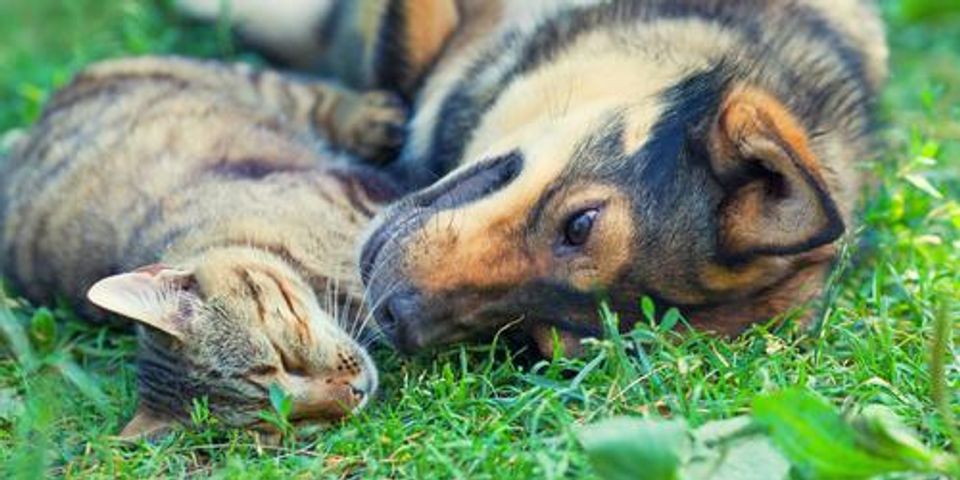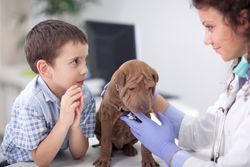
When you bring your animal to a pet hospital, you may learn they have a thyroid disorder. This issue can occur in dogs or cats due to an under-active or hyperactive thyroid. Hypothyroidism, or under-active thyroid, is most common in dogs. They are often overweight, and can be less active with poor coat quality. Hyperthyroidism, or over-active thyroid, is most common in older cats. They will often lose weight despite eating well, and vomiting or diarrhea and a rapid heart rate with high blood pressure can be seen too. Thankfully, thyroid conditions are very treatable and specialized care will ensure your furry friends have a good quality of life. To learn how to care for these special critters, Montgomery Animal Hospital in Cincinnati, OH, shares three tips they recommend to pet owners.
Follow These 3 Tips for Pet Thyroid Care
1. Stick to a Regular Medication Schedule
If the pet hospital recommends that you use medications to treat your dog or cat’s thyroid problems, follow their instructions. Give the proper dosage every day at the same time to help your pet regulate their thyroid. When given correctly, you should see a decrease in symptoms within a few weeks. Dog thyroid dosages are much higher than human dosages, so resist the urge to compare pills with your dog.
2. Pay Attention to Their Weight
 Thyroids play a major role in weight regulation. Initially, hypothyroid dogs should lose weight and hyperthyroid cats should gain weight when they start medication. Keep an eye on your animal’s weight once they’re stable; changes may indicate that their thyroid treatment regimen isn’t working. Don’t hesitate to call the pet hospital and ask for advice if you notice your dog or cat is over- or underweight. They’ll provide advice or schedule an appointment so you can go in and discuss the changes.
Thyroids play a major role in weight regulation. Initially, hypothyroid dogs should lose weight and hyperthyroid cats should gain weight when they start medication. Keep an eye on your animal’s weight once they’re stable; changes may indicate that their thyroid treatment regimen isn’t working. Don’t hesitate to call the pet hospital and ask for advice if you notice your dog or cat is over- or underweight. They’ll provide advice or schedule an appointment so you can go in and discuss the changes.
3. Attend Follow-Up Appointments
When the veterinarian recommends that you return to the pet hospital a month or so after you learn about your animal’s thyroid trouble, follow through. This second appointment will help discern if the original treatment plan is working and if your pet’s health is improving. Bloodwork monitoring is critical with thyroid treatment. Hyperthyroid cats will often also suffer from kidney disease, and bloodwork will allow your veterinarian to properly adjust dosages and adjust medication if needed.
Cats with hyperthyroidism can be treated with daily medication, a specific prescription diet (Hill’s Y/D), or radioactive iodine therapy. A thorough consult with your veterinarian will decide the best treatment for your particular cat.
Thanks to today’s veterinary medicine, most thyroid issues are manageable with the help of medications, technology, and talented vets. To schedule an appointment at Montgomery Animal Hospital, call (513) 791-7912. Visit the website for information on the pet hospital’s compassionate, highly trained care team and their in-house services like diagnostics, dentistry, and laser therapy. The practice caters to dogs and cats as well as exotic creatures like birds and rodents.
About the Business
Have a question? Ask the experts!
Send your question

